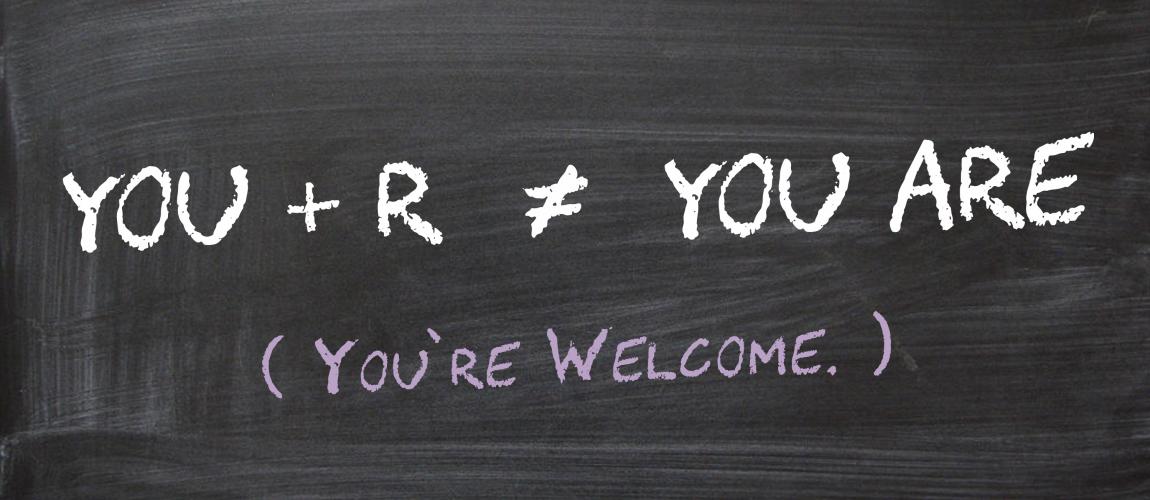

Your and You're: Not Equal
What is the difference between your and you’re? Try this easy mnemonic device to help you learn when to use which word in this quick grammar tutorial.

Here’s the thing, folks. Grammar matters. Possibly now more than ever, and here’s why.
When we send our written words out there on those screens, they speak for us. And if you want your message to be heard, grammar mistakes detract from content and can confuse meaning.
“Let's eat Grandma!” vs. “Let’s eat, Grandma!”
Funny, but not funny if you expect your recipient to take you seriously (or if you’re the poor Grandma in the first sentence).
The harsh truth is that errors cast a shadow of doubt upon what you are saying by leaving the impression that you either didn’t bother to check your words before sending them off, or that you don’t fully understand the language you’re using to communicate.
We don’t want either of these and let’s face it...proper grammar never hurts, but poor grammar certainly can. If you’ve always wanted to improve your language skills but feel like the process is daunting, fear not. The beauty of grammar is that you can learn it in bite size chunks and each aha moment helps smooth the way for clearer communication.
So, if you’ve been known to mix up your and you’re, today is the day we put an end to that once and for all. You can remember when to use which with this simple linguistic “equation”:
you + r ≠ you are
You + r (or your) does not equal you are (or you’re).
Say it again: you + r does not equal you are.
Now for some explanation. It’s not enough to learn the what without understanding the why, right?
Let’s start with your, which is a possessive adjective. Adjectives modify nouns (a person, place, thing, or idea), and possessive means it signals possession. It belongs to someone.
your awesome mom = you are referring to someone else’s awesome mom
your fluffy puppy = you are referring to someone else’s puppy and it’s fluffy
In the above examples, your, awesome, and fluffy are all adjectives describing the nouns mom and puppy.
Now, you’re is a contraction. It uses an apostrophe to shorten the phrase you are.
You’re awesome, mom = Mom, you are awesome
You’re fluffy, puppy. = Puppy, you are fluffy
When in doubt of which one to use, repeat: “you + r” does not equal “you are”. If you’re trying to say that someone “is” something, you need “you are”. If you are referring to something someone owns, use the possessive “your”.
You’re right = You are right
You’re welcome = You are welcome
You’re amazing = You are amazing
Your house = the house that someone owns
Your family = the family to which someone belongs
Your skills = the skills that someone possesses
Some other mnemonic devices (tricks for remembering):
I am dating myself when I say one of my favorite movies is My Cousin Vinny, but if you know that movie and you can remember the scene where Lisa says to Vinny in her Brooklyn accent, “Ohhhhh you’re a smooth talker, you are, you are!!” She’s saying “you are a smooth talker” You’re = you are.
Come up with a simple line involving an attribute (something you possess) and an emotion or status (something that uses the verb “are”). This line can help you remember the difference between the two:
Your eyes say you are angry.
Your walk says you are confident.
Your car says you are rich.
There it is, friends. You’re on your way to great grammar.
2 comments